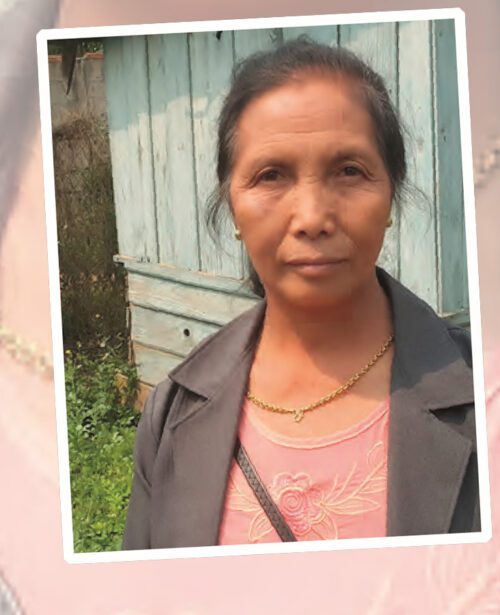Bouchan Huengvilay
Peak District, Xien Khuang Province, Laos
I have observed that over the years, communities that have used a lot of pesticides have also reported a lot of illnesses and deaths of livestock.
For instance, I know of a 12-year girl from a village close to the Northern part of Xien Khuang, where they plant maize and spray pesticides. The girl had been swimming and playing in the river that was contaminated by pesticides from the maize plantations. She developed lots of rashes that was difficult to cure, and her parents had to seek medical attention in the main city.
My own neighbour who had been spraying pesticides had thyroid problems and developed hand tremors. Her husband experienced the same problems, and had to have his thyroid removed.
I also saw that animals that feed on vegetables sprayed with pesticides died and got ill. In other communities using pesticides, there weren’t much fish and other aquatic animals like crabs.
So after hearing many cases like this, I felt it was useful to be part of a network of organic farmers. Ever since I started farming, I myself have not used pesticides in my farm. I tend to my vegetables, and water them from my pond. I also save seeds.
We started in 2009, with SAEDA’s intervention and training on methods based on agroecology. The project promoted local seed selection, production and conservation.
Organic farming has been a success. Previously, we used to make about 5 to 6 million Lao Kip (LAK) a year (USD 720 to 745 at 1 USD= 8055 LAK). Now we make about 18 to 48 million LAK (USD 2235 to 5959) a year selling our vegetables. That is many times higher than Bouchan’s organic pesticide made from before! chilies, garlic, gallanga and various other plants.
First of all, selecting good seeds reduces
production cost. I don’t have to use chemical fertilizers. Secondly, it makes the plants strong and resistant to pests and diseases.
We have better health and the environment is healthier. More people are aware of the benefits of organic farming, and of the adverse impacts of chemicals on health. Now, even restaurant owners have placed orders with us.
As president of the Organic Farmers’ Association (OFA), even my husband is very proud of my accomplishments. I’m glad to lead this network of farmers who are mostly women. Women do have more tasks to complete than men. That is why it is important to divide our tasks in the farm and train other women in techniques based on agroecology.
I felt even more encouraged when the District Agriculture and Forestry Office gave us a free venue to sell our vegetables. Now we don’t have to pay rent for our vegetable stalls! In the future, I would like OFA to be registered as a farmer’s cooperative, because for now it is still an association.


